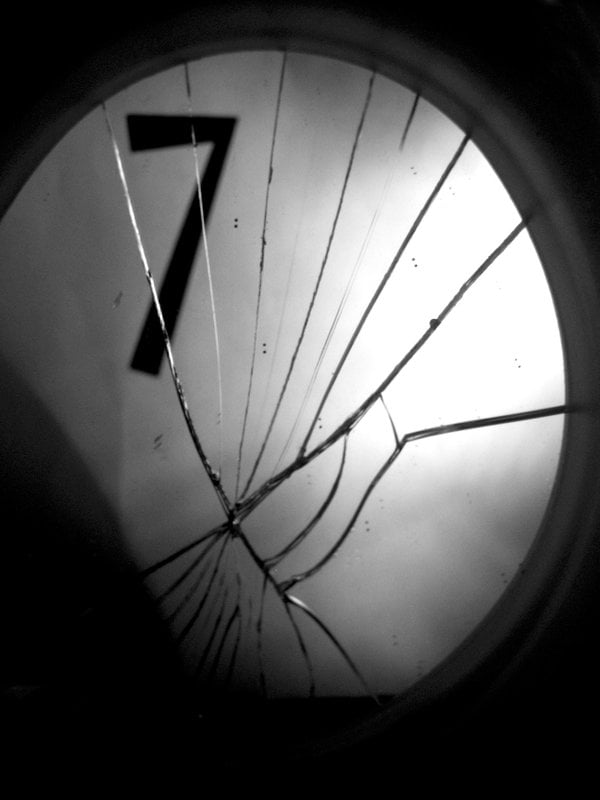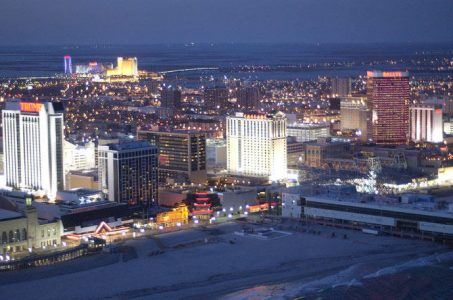Unlucky Seven-Year Descent as Atlantic City Falls Below $3 Billion
Posted on: January 16, 2014, 05:30h.
Last updated on: October 11, 2022, 04:18h.

It’s amazing what a difference seven years can make. Atlantic City – which was going strong and winning $5.2 billion from gamblers in 2006 – has seen seven straight years of declining revenues, culminating in the city’s 12 (now 11) casinos bringing in less than $3 billion in gambling revenues for the first time in 22 years in 2013.
The exact figure that was released recently by the New Jersey Division of Gaming Enforcement came to $2.86 billion, or close to a five percent drop from the $3 billion the casinos brought in during 2012.
Triple Whammies
There have been many contributing factors over the years that have kept the losing streak going for Atlantic City’s casinos. But while the 2008 recession and the damaging effects of Hurricane Sandy in 2012 certainly hurt the gambling resort, the number one reason for the decline has been increased competition from nearby casinos.
In fact, the downturn coincides exactly with the year when the region began getting more competitive for casino operators overall. In 2006, the first casino was built in Pennsylvania, giving gamblers – especially casual casino visitors – a destination closer to home. There are now 12 Pennsylvania casinos, and as of 2012, they were bringing in more money in total than their Atlantic City counterparts.
The decline had real-world implications at the start of 2014, as the Atlantic Club Casino Hotel shut down mid-January, leaving the city with just 11 operating casinos.
Can Internet Gambling Save the Day?
However, industry insiders say that they expect this trend to reverse itself in 2014, as the introduction of online gambling should provide a much-needed boost in revenues during the coming year.
“Obviously it’s disappointing to see another year where it’s a decline,” said Tony Rodio, head of the Casino Association of New Jersey and president of the Tropicana Casino and Resort, which snatched up a piece of the Atlantic Club and will be taking most of the casino’s gaming equipment. “But hopefully with the addition of Internet gambling, I think you’re going to see an increase in 2014.”
The 2013 annual figures were the first-ever to include online gambling revenue in New Jersey, as the state’s Internet casino marketplace opened in late November. Overall, casinos took in $8.4 million in winnings during that time. The lion’s share of that revenue was split between the Borgata and Caesars Interactive, which combined to bring in $6.1 million of that total.
The largest winner of all was the Borgata, which won $3.7 million on its PartyPoker-branded online gambling sites.
“Our network has attracted the largest pool of players in the New Jersey online market, allowing us to offer our customers a wide selection of games and table stakes at all times,” said Keith Smith, president of Boyd Gaming (a firm that owns half of the Borgata). “This gives our network a significant competitive advantage and positions us for further success.”
According to Smith, there was also evidence that the online casinos were bringing in additional revenue, rather than simply shifting money from land-based operations to the Internet.
“When matching our online and land-based databases, we found that 60 percent of online casino customers had not been to Borgata in over a year, and over 75 percent had made fewer than two trips to Borgata in the past year,” said Smith. “And on a combined basis, online and land-based poker revenue at Borgata was up more than 40 percent from our land-based play in December 2012. Clearly, online gaming is complementary to our land-based business, not competitive.”
Still, it’s not yet certain whether online gambling will be the city’s financial savior. Overall, casinos took in $222 million in December 2013 – including their online sites – which was still down slightly from the $223.5 million they took in during December 2012.
Related News Articles
New Jersey Online Gambling Revenue Drops for First Time
Most Popular
LOST VEGAS: ‘Tony The Ant’ Spilotro’s Circus Circus Gift Shop
Las Vegas Overstated F1 Race’s Vegas Impact — Report
Mega Millions Reportedly Mulling Substantial Ticket Price Increase
NoMad Hotel to Check Out of Park MGM on Las Vegas Strip
Most Commented
-
End of the Line for Las Vegas Monorail
— April 5, 2024 — 90 Comments -
Mega Millions Reportedly Mulling Substantial Ticket Price Increase
— April 16, 2024 — 8 Comments -
Long Island Casino Opponents Love New York Licensing Delays
— March 27, 2024 — 5 Comments















